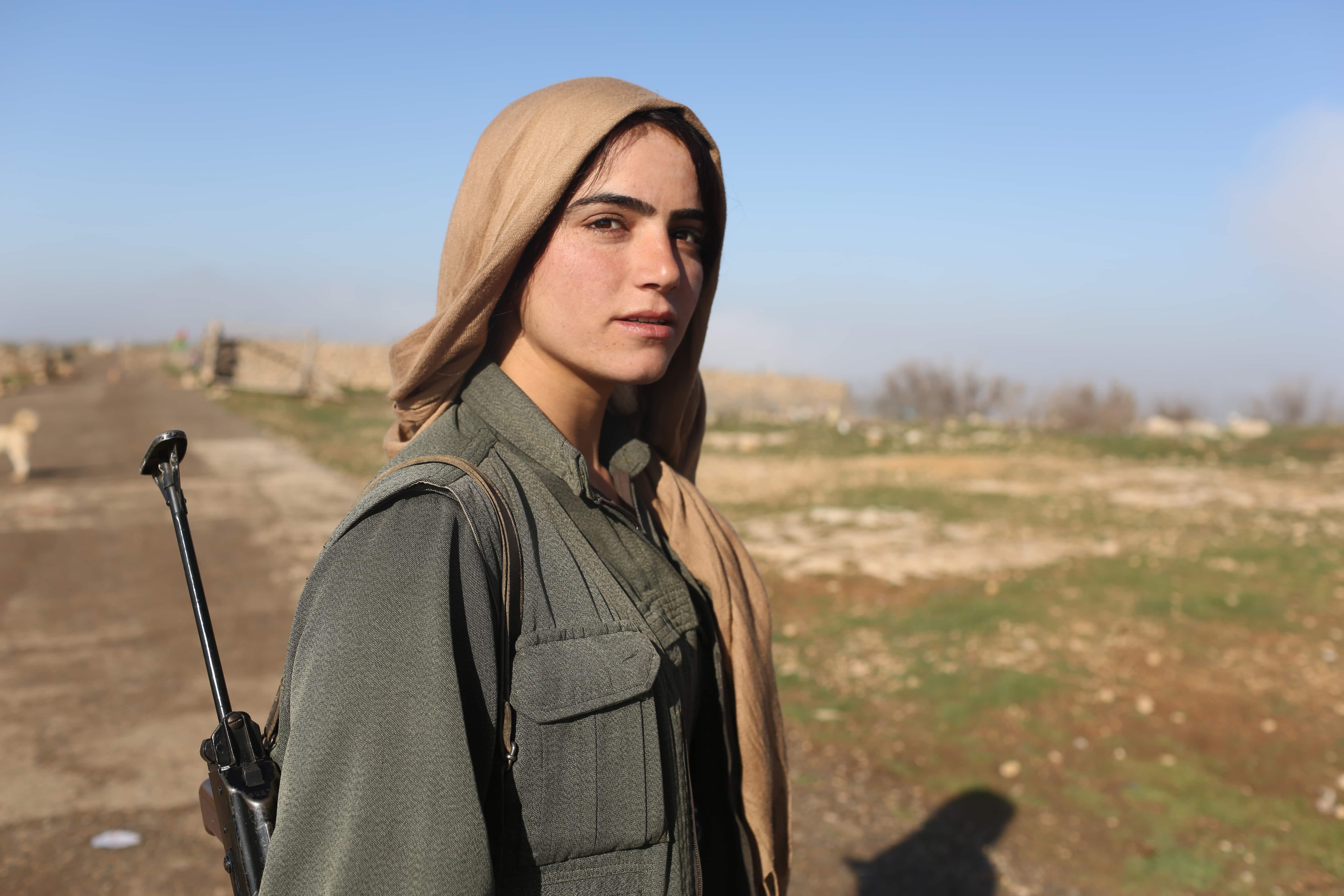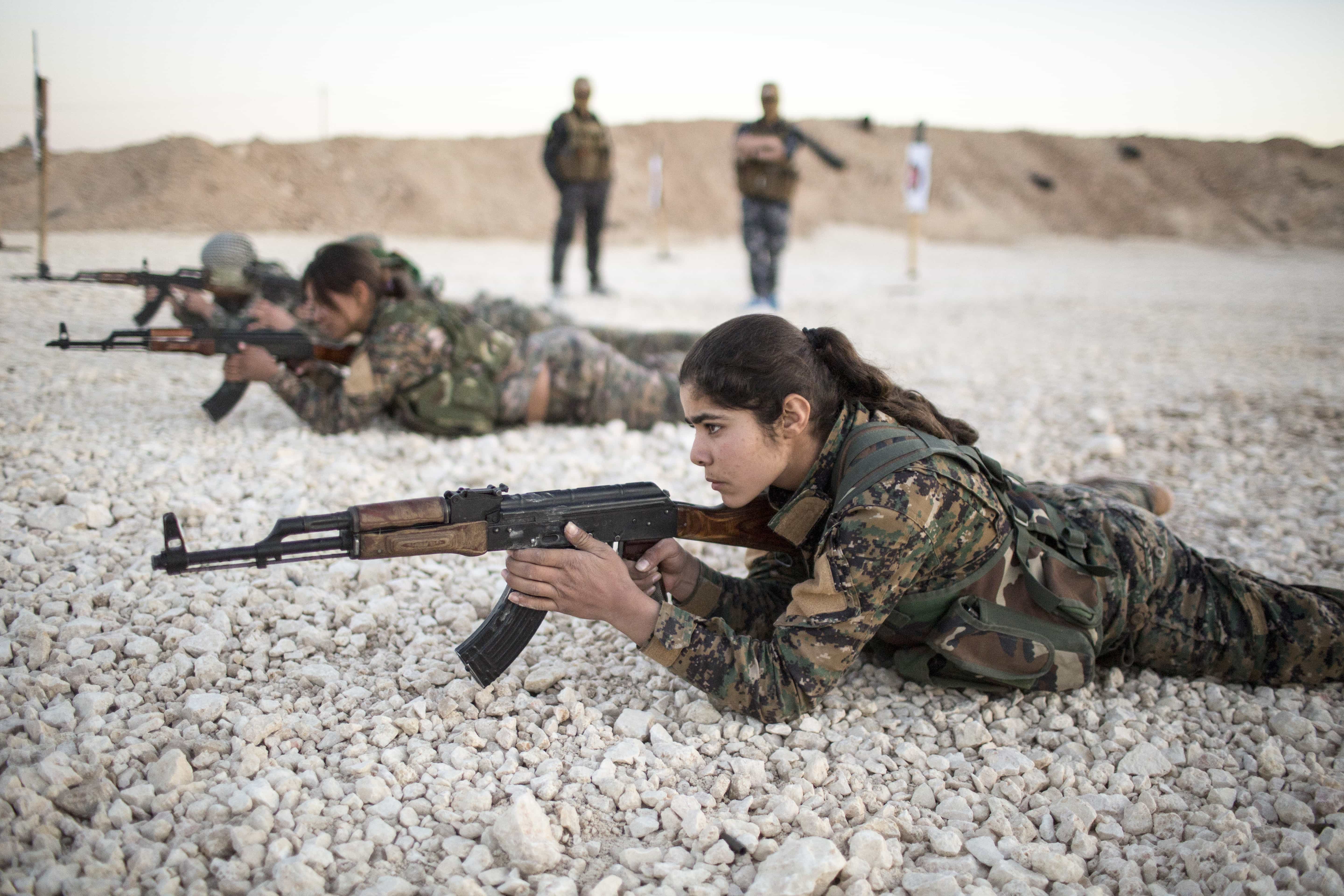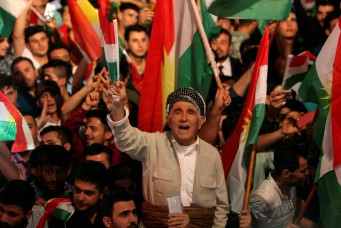Sister of the Rebels
Meet the sister of the rebels.
Photographer Asmaa Waguih has repeatedly found herself at the center of the Middle East’s most violent conflicts. After the outbreak of the 2010–11 Arab Spring, she begged her editor to send her to Bahrain or Yemen, but ended up in Tripoli, the birthplace of the Libyan revolt. She was in Libya only twenty-four hours after Qaddafi’s men deserted the Libya– Egypt borders. She visited northern Syria to photograph female Kurdish fighters and was assigned to the Sinjar region of Iraqi Kurdistan, the site of Yezidi persecution. She even documented the collapse of the Islamic State’s caliphate in cities across Libya, Iraq, and Syria. She was also on assignment in Helmand province in south Afghanistan but after every project, Waguih was eager to move on to the next untold story.
Waguih, a longtime freelancer and photographer for Reuters, has made it her lifelong project to give voice to unheard narratives from the Middle East. Far from thinking of herself as a war reporter following trails of conflict, Waguih is rather driven by curiosity about other cultures and people. “I just wanted to discover the areas close [to] me. I wanted to go to Gaza. Libya you can go over land; it’s also not costly. Jordan, I also went, just took the ferry from Nuweiba, from Sinai,” she said in an interview with the Cairo Review.
There was no lack of stories on which to report in Libya. She stayed with the Eastern Rebels, who were not used to seeing women journalists. Waguih would accompany them to the frontlines in their pickup trucks so often that they gave her the nickname, “sister of the rebels”.
Waguih’s most recent project in 2014 uncovered the impact of the Islamic State in Iraq and Syria (ISIS) in Kurdish territories. She photographed Kurdish, Arab, and Yazidi women living under ISIS occupation and their efforts to fight for freedom. She exhibited her photographs at the American University in Cairo. Hanging on the walls of the exhibition, which her sister helped title “On the Road to Freedom,” are pictures of female fighters from the Kurdistan Workers’ Party (PKK) and the Women’s Protection Units (YPJ). (The PKK is a Kurdish political and military organization operating in the Kurdish territory of Turkey and Iraq. The YPJ is an exclusively female militia based in northern Syria.) These groups, along with others, are the reason that one-third of fighters in Kurdish territory are women. Her photographs of the Kurdish women fighters are meant to depict their political struggle, as seen in a photo of a woman security officer awaiting the female former co-president of Manbij, a city in northeast Syria. Other photographs display women pushing social boundaries, such as the one of a woman smoking a cigarette— an act previously forbidden under ISIS control.
Reporting on these stories was far from easy. Freedom of the press is not guaranteed in Kurdistan, meaning that at any moment, Waguih could have been denied a story. Since Kurdish areas have been a hotbed for intelligence gathering and spying, many residents were often suspicious of a hidden agenda behind reporters’ questions. Waguih was sometimes denied interviews because she herself was a woman navigating a relatively conservative area, especially when she tried to talk to members of the Islamic State.
Nonetheless, Waguih says she does not let clickbait journalism dictate how she reports. She is cognizant of the fact that mainstream media often picks the “center point” for a story and then forgets about the peripheral stories. For example, in Yemen, the media chose to focus on the famine caused by the war. But Waguih found an even more pressing story in the landmines laid by Houthi forces that disproportionately affected civilian lives. She notes that, especially in the West, the media writes stories based on “what will break your heart more”. Her goal is not to maximize her viewership, but rather share the human experiences she feels are important.
Waguih is currently on assignment in Sudan, covering how people have been affected by the protests following the ouster of Omar Al-Bashir. The real power she wields lies in not letting the mainstream media or powerful players define her stories, and by maintaining her individual voice, she is able to access the stories of communities which would otherwise be forgotten.









